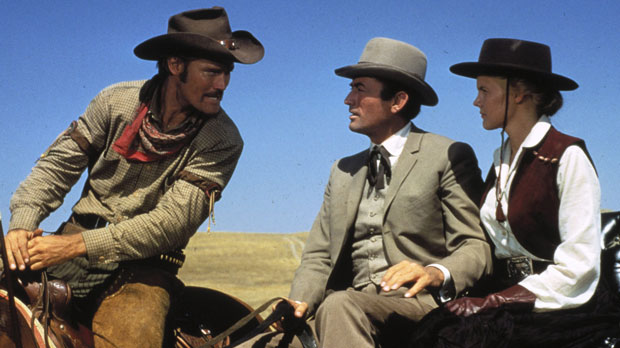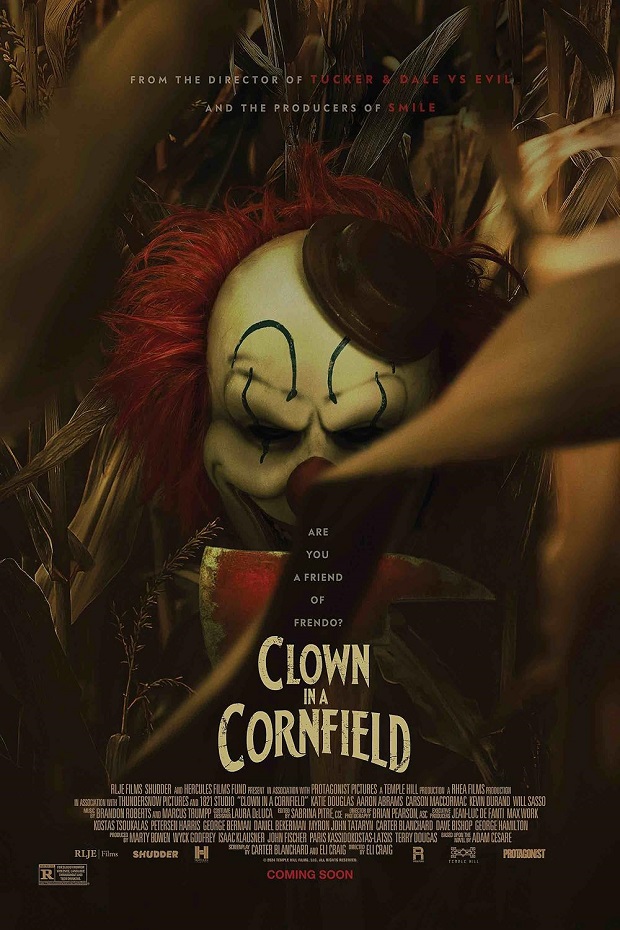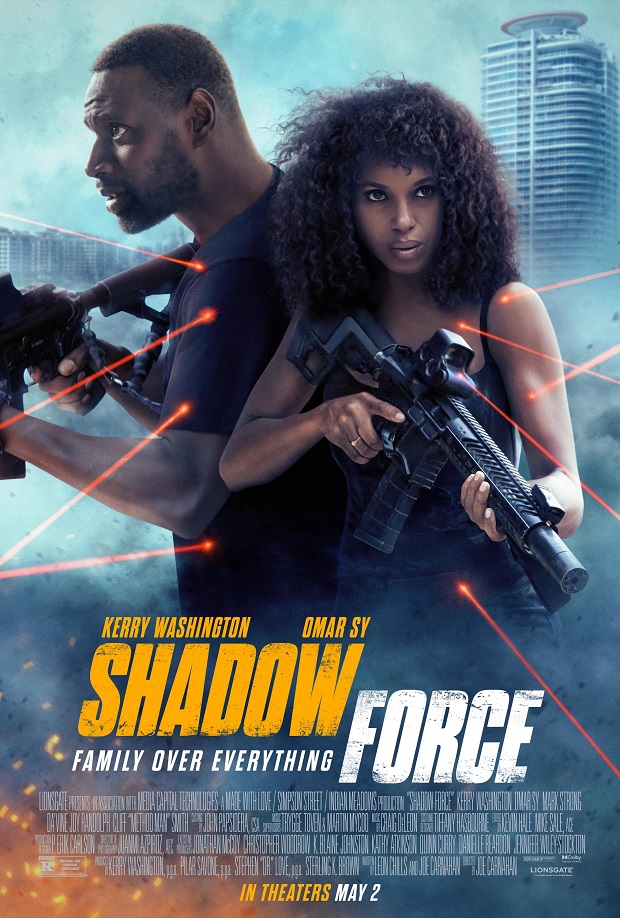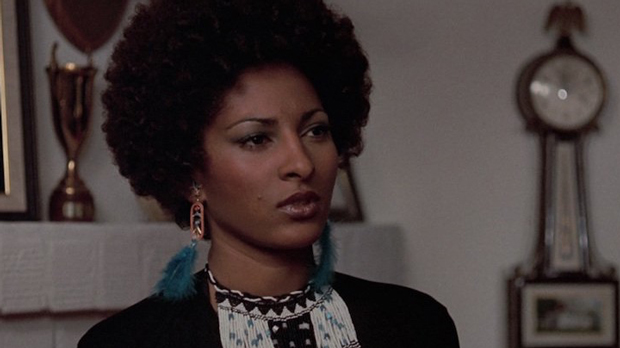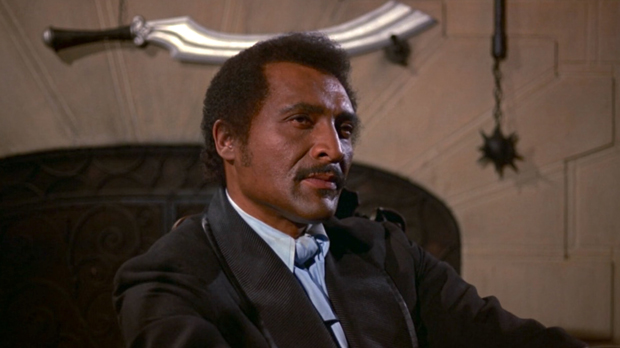 The Big Country (1958) United Artists/Drama-Western RT: 167 minutes No MPAA rating (violence, mild language) Director: William Wyler Screenplay: James R. Webb, Sy Bartlett and Robert Wilder Music: Jerome Moross Cinematography: Franz F. Planer Release date: October 1958 (US) Cast: Gregory Peck, Jean Simons, Caroll Baker, Charlton Heston, Burl Ives, Charles Bickford, Alfonso Bedoya, Chuck Connors, Chuck Hayward, Buff Brady, Jim Burke. Box Office: N/A
The Big Country (1958) United Artists/Drama-Western RT: 167 minutes No MPAA rating (violence, mild language) Director: William Wyler Screenplay: James R. Webb, Sy Bartlett and Robert Wilder Music: Jerome Moross Cinematography: Franz F. Planer Release date: October 1958 (US) Cast: Gregory Peck, Jean Simons, Caroll Baker, Charlton Heston, Burl Ives, Charles Bickford, Alfonso Bedoya, Chuck Connors, Chuck Hayward, Buff Brady, Jim Burke. Box Office: N/A
Rating: ****
There was a time when Hollywood made big movies that didn’t involve tons of CGI and noise. There was a time when a big movie meant a sweeping drama on an epic scale. There was a time when such movies involved well-defined characters as opposed to one-dimensional character types. A lot of us film buffs look back on that time wishing modern filmmakers would take note of the work and craftsmanship that went into making movies. Directors like William Wyler possessed the know-how to do it up big without sacrificing character or plot development.
The year before he swept the Academy Awards with his Biblical epic Ben-Hur, he directed the western-drama The Big Country. It’s big alright. In fact, it’s all-caps BIG! It isn’t your typical oater with some gunslinger strolling into town and shooting it out with bad guys. Wyler has loftier intentions as evidenced by the emphasis on drama over action. Gregory Peck (Duel in the Sun) stars as James McKay, a retired sea captain who comes west to marry his fiancée Pat (Baker, Baby Doll), the selfish and spoiled daughter of wealthy ranch owner “The Major” (Bickford, The Song of Bernadette).
Shortly after his arrival, he has an altercation with Buck Hannassey (Connors, The Rifleman) and his gang. Buck’s father Rufus (Ives, Cat on a Hot Tin Roof) is the Major’s chief rival and archenemy. The two families are engaged in long-running feud over the land rights to the area’s sole source of water, a river located on “The Big Muddy”, on property owned by schoolteacher and part-time rancher Julie Maragon (Simmons, Guys and Dolls) who takes a neutral stance on the feud by allowing both families to water their cattle on her land.
McKay refuses to fight back when Buck and his men harass and terrorize the couple, a move that Pat doesn’t understand. He also turns down a challenge from ranch foreman Steve Leech (Heston, The Ten Commandments) to ride “Old Thunder”, the wildest horse in their stable. Steve dislikes McKay from the start. He constantly tries to goad him into a fight, but McKay refuses to take the bait eventually leading to Pat thinking he’s a coward and breaking off the engagement. What she doesn’t know is that McKay secretly bought The Big Muddy from Julie as a wedding present for her. After the break-up, he decides to stick around and try his hand at ranching. Although he agrees to let both families use the river, it doesn’t settle the feud between the two families. If anything, it makes it worse.
The Big Country is one of the most compelling movies I’ve seen in a while. As a western, it’s closer in spirit to Duel in the Sun than anything with John Wayne. As a teen, I never thought I’d become a fan of old-style westerns from the 40s and 50s. I was always more of a Clint Eastwood spaghetti western kind of guy. That changed after I saw The Searchers for the first time circa 1998. Now I think they’re great. The Big Country is absolutely incredible. The story just pulls you right in from the word go. The Technicolor cinematography by Franz F. Planer is breathtaking even though I’m sure something is lost watching it on a TV screen. The wide Texas vistas are absolutely meant to be seen in 70mm.
The actors all turn in great performances from the always reliable Peck to man’s man Heston. Their contentious relationship culminates in a protracted fist fight at dawn. Baker is terrific as the spoiled rich girl who looks down her nose at anybody who isn’t a member of her social class. She’s a woman of contradictions. She angrily rebuffs Steve’s advances because he isn’t a gentleman, yet loses respect for McKay because he behaves like one in not defending his honor with violence. Simmons delivers a solid performance as Julie, a fiercely independent sort who won’t be told what to do. You know pretty much from the start she’s a better match for McKay than Pat. This is the first time I’ve seen Ives play a bad guy. I’m used to the kindly old man that narrated the 1964 Christmas classic Rudolph the Red Nosed Danger. He’s great in the role; it earned him a Best Supporting Actor Oscar. On the other hand, Connors is completely believable as the despicable creep (and innate coward) who tries to force a courtship with Julie only to be sent packing by the no-BS teacher/rancher when he comes calling.
As excellent as The Big Country is, it tends to be heavy-handed with its unsubtle message of non-violence. We’re shown more than once that violence doesn’t really solve anything. Aside from that little misstep, it’s an outstanding film. It has drama, romance and action. The finale consists of a gunfight in a canyon, a duel and a final showdown between the two patriarchs. Although it seems to contradict the movie’s message, it actually reinforces it. The characters and their conflicts are fully developed. There’s a lot of conflict. One that I haven’t mentioned is the one between Rufus and Buck. He doesn’t think very highly of his son and reminds him of this at every turn. The way it’s finally resolved is truly something albeit not unexpected.
At nearly three hours (167 minutes to be exact), The Big Country is long but doesn’t feel like it. It’s consistently interesting. It’s the result of good storytelling by Wyler and writers James R. Webb, Sy Bartlett and Robert Wilder who based their script on the serialized magazine novel “Ambush at Blanco Canyon” by Donald Hamilton. I’ve seen it twice and will probably watch it again at some point. It’s one of those films that remind me why I love the medium so much. If only Hollywood still made movies this thoroughly satisfying.
